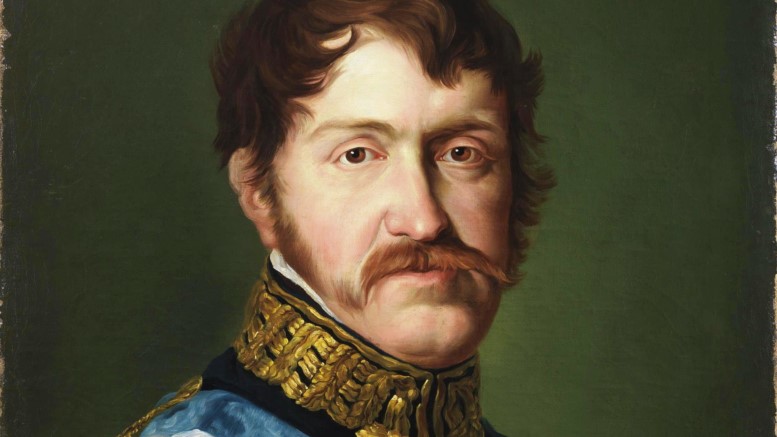
This was one of the questions asked at the recent activity of the Círculo Antonio Molle Lazo. The question had primarily a historical dimension.
It is not true that the Communion has always been on the losing side in battle. It is not only in the First War that the King’s forces and his popular support were vastly superior. Also, the triumph of ’39 was unthinkable without the Red Berets, which pacified much of the north and the south of the peninsula.
Nevertheless, as a brotherhood of loyalists, the Spanish legitimists were especially weakened by defections and betrayals: commencing with Maroto and culminating with Carlos Hugo, who extinguished his own dynastic line.
In this, we perceive a natural explanation: Carlism is an organic and integral unit. It has three roots: the dynastic banner, since it is essentially the cause of the legitimate king of Spain, of which H.R.H. Prince Sixtus Henry is currently the standard bearer; a juridical-political doctrine, that is, a concrete conception of the Catholic political system; and a historical continuity, of that system which views Spain as a Christianitas minor, and which refuses to perish.
If any of these roots are missing, this tree runs the risk of dying. When a Carlist dispenses with any of them, he ceases to be a Carlist. This omission triggered some of the past weaknesses within this Communion of loyal insurgents. All betrayals were committed by trampling upon these roots.
These three pillars are not only those of historic Spain, whose soul is orthodox Catholicism, protected by a king who is the principle at the head of all our local and regional legal peculiarities. They are also the cornerstones of almost all Catholic kingdoms of classical Christendom. All these were defeated one after the other by the Revolution, even though they should not have lost.
A second perspective, which leads us to the theology of history, must be considered in order to answer the question. From the Book of Revelations, canonically interpreted by Fathers of the Church such as St. Augustine, we understand what Vázquez de Mella emphasized: History has a downward inclination. On this inverted path, the Revolution thrusts towards the prelude to the End Time. How to understand the prophecy «And it was given unto him to make war with the saints, and to overcome them» (Rev. 13:7)? The Christian kingdoms have succumbed without remission to revolutionary power.
This is not to say that we are in the Apocalypse. But every Catholic and every cause must take into account the harshness of the End Times for the faithful of Christ, since we know «not the day nor the hour,» it may be our turn to live through them. This reminds us that the Holy Cause belongs to Divine Providence, like everything else.
We cannot ignore this. And against the despondency that threatens in this age of dissociation, there is something that we must humbly keep in mind. Why is it proper that we know «not the day nor the hour»? Because «watch ye, and pray» is always in force, it is a perpetual command for all times and circumstances.
Each baptized person has their duties, according to their condition and state in life. As laity, we are especially obliged to establish all temporal realities «in Christ», from our family to the political order. We have this mission for as long as we live; it does not depend on how old we are or the age in which we live. We are bound to this duty by our state in life and by the natural bonds of piety to which we are bound.
Roberto Moreno, Círculo Antonio Molle Lazo de Madrid
Translated by Alférez Matthew Scullin, Círculo Camino Real de Tejas




Deje el primer comentario